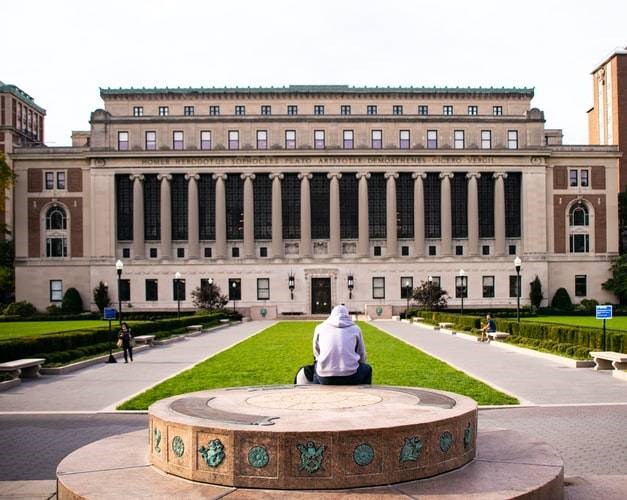I have never thought I would actually make it.
I am a Brooklynite, born and raised in this beautiful corner of New York City. My father worked a hard job at a Chinese restaurant where his position was easily replaceable, adding a layer of financial insecurity. He was infrequently home. As a result, I stayed with my grandparents for the majority of the time.
Not having the opportunity to attend school himself, my grandpa had ambitious goals for me to succeed academically. Even with his wishes, he had never pressured me, but rather guided me. My grandpa's strong belief in the power of education to change lives was perhaps the reason I had a certain determination when it came to academics. I valued every opportunity I had in the classroom.
School was a haven for me to explore my intellectual interests and grow as a learner. Yet, I wasn't sure what was in store for me after high school. Being a first-generation, low-income (FGLI) college student meant that the daunting and complex college application process was one that I had to tread on my own. I was filled with uncertainty until junior year when a school administrator introduced us to the QuestBridge College Prep Scholars Program. With curiosity, I applied and got accepted.
Though some of my close peers encouraged me to apply to the school of my dreams, I did not think it was possible. QuestBridge opened a window for me. I was introduced to the rich and diverse array of amazing colleges that I could apply to. QuestBridge also reinforced to me that the nation's top colleges were within financial reach me.
After touring Columbia in the midst of my junior year (pre-pandemic), I was certain that this university, with its unique Core Curriculum, dazzling campus, and amazing opportunities was the right fit for me. Yet it has never crossed my mind that I would be accepted, especially after I was not matched during the National College Match.
My acceptance came with tears, shock (I even called the admissions office to confirm), and immense gratitude for the people that have allowed this to happen. Most importantly, I want to encourage low-income students like myself to shoot for the stars and seek out opportunities. I know that the hours I've spent studying, understanding the college application process, and preparing for the SATs were all necessary steps to stand closer to my dreams.
Educational disparities have made higher education more difficult to attain for low-income students of color, but while advocating for closing the gaps, you must believe that you have the potential to achieve.




